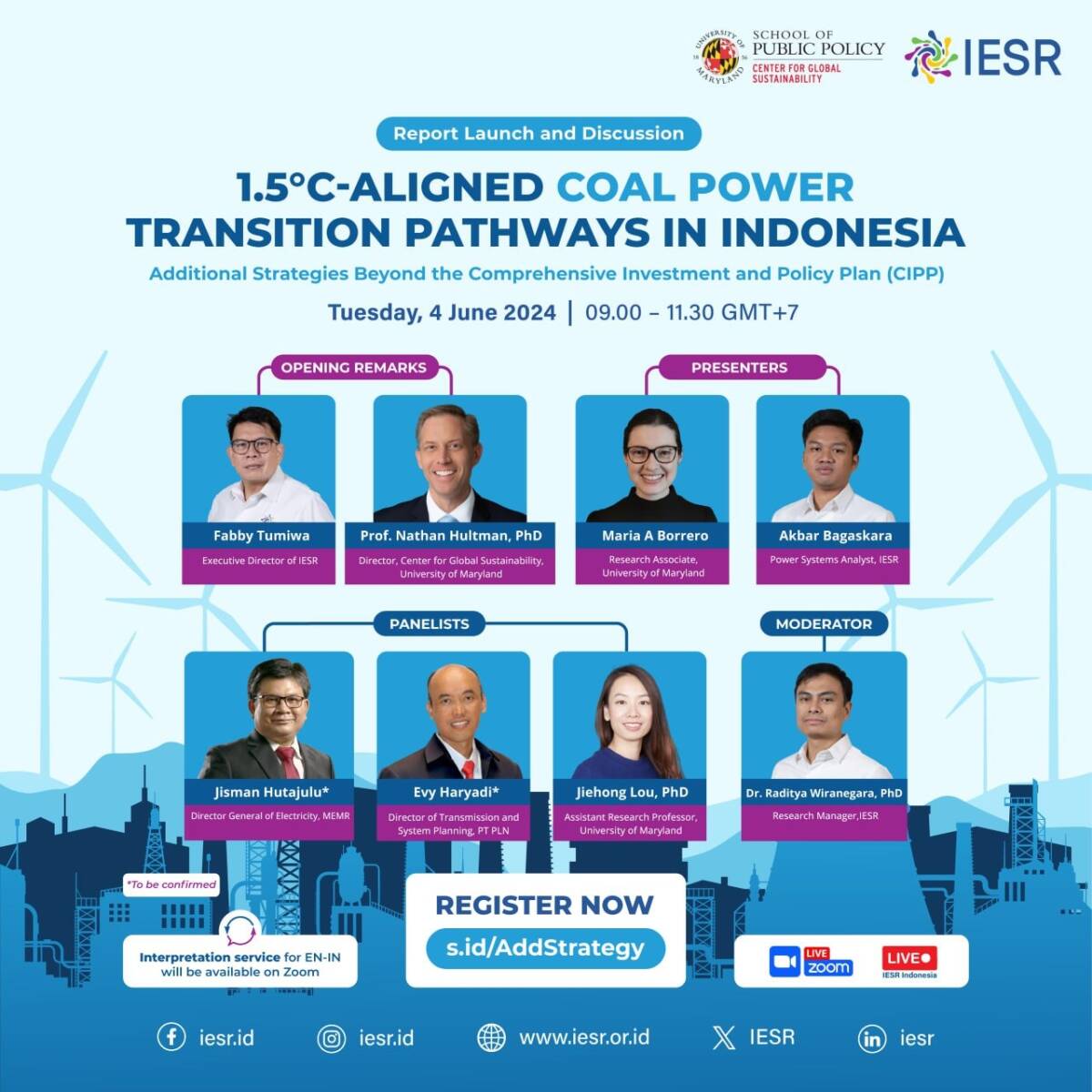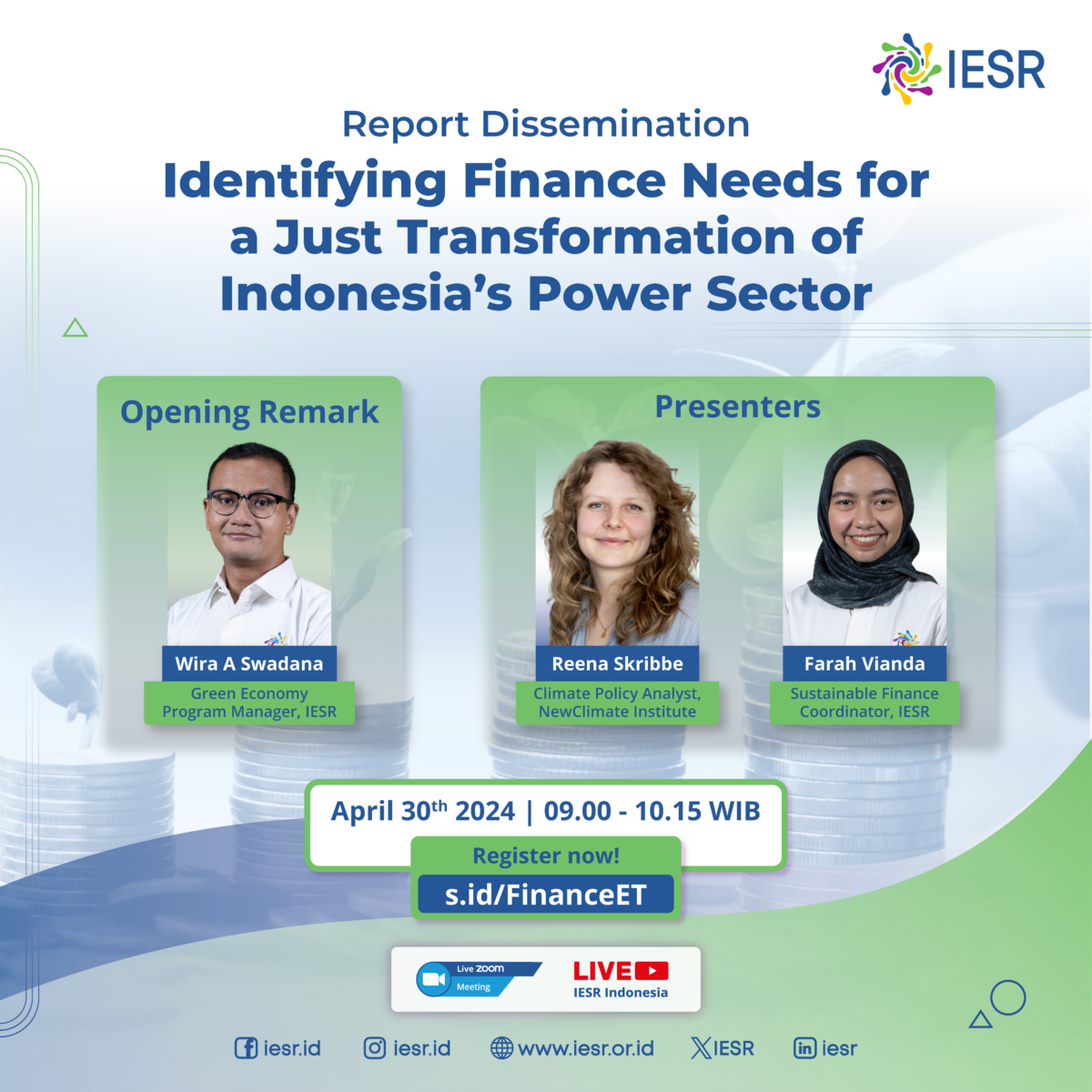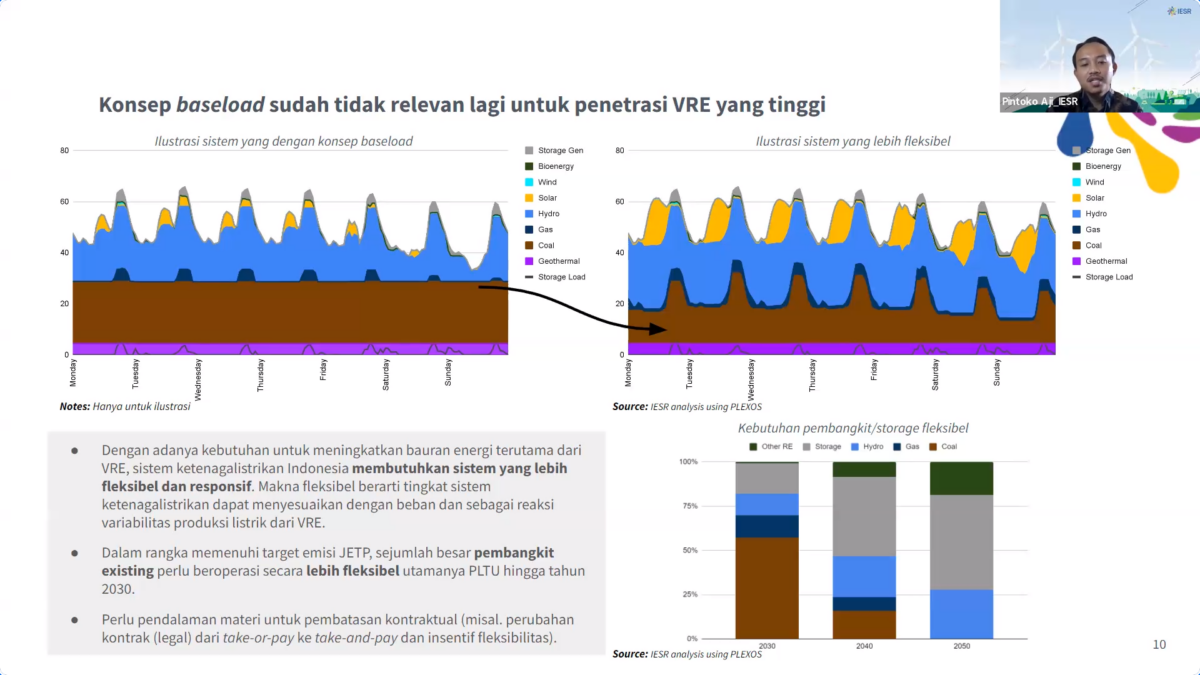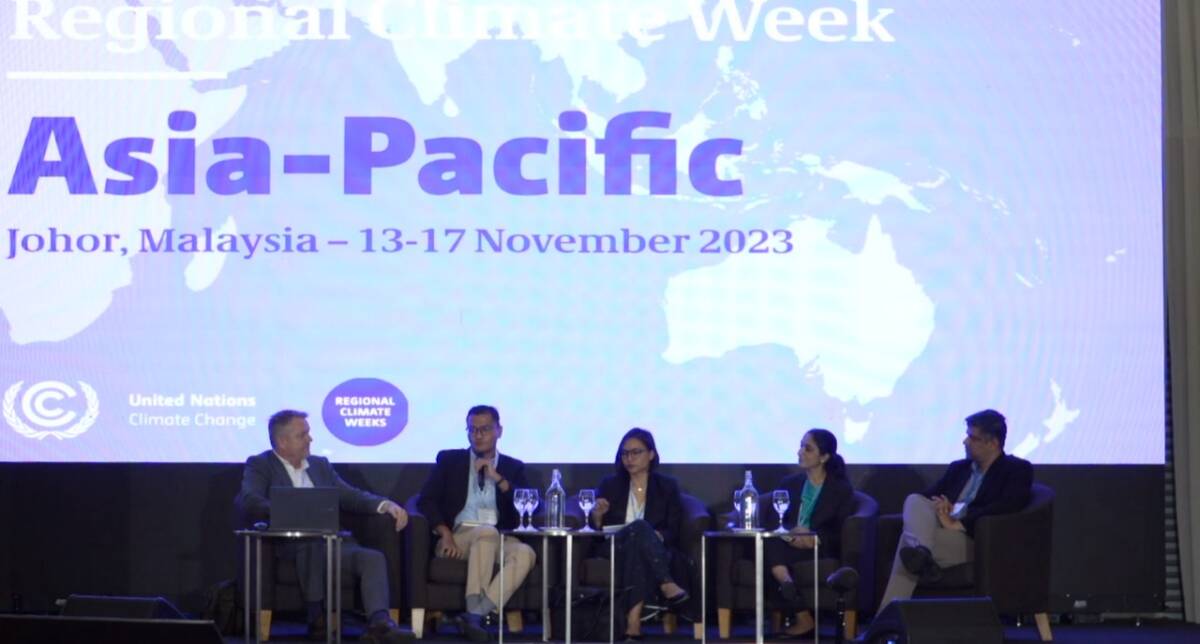Deon Arinaldo, Manajer Program Transformasi Energi, IESR
JAKARTA, INDONESIA | June 4, 2024 - The Institute for Essential Services Reform (IESR), Indonesia's energy transition and environmental think tank, and the University of Maryland's Center for Global Sustainability (CGS) launched two new studies focused on strategies for achieving a thriving clean energy transition in Indonesia. The first…





